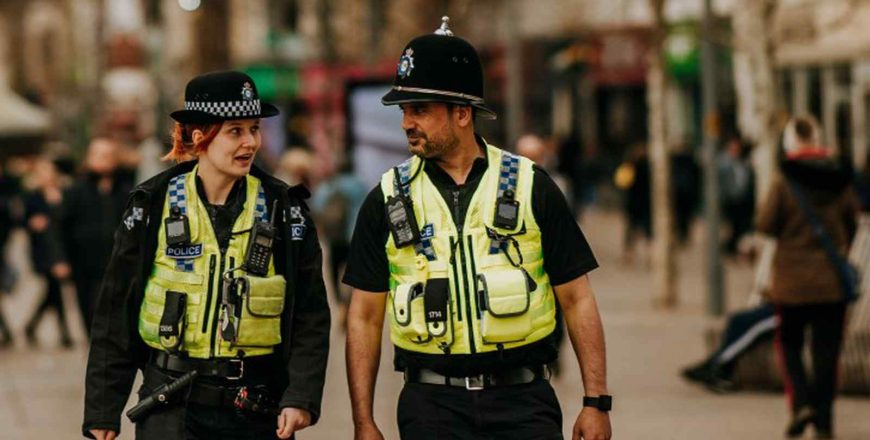
On a police constable apprenticeship course, you’ll help uphold law and order through the detection, prevention and investigation of crime.
The work of a police constable is both physically and psychologically demanding, requiring high levels of emotional intelligence, outstanding behavioural interpretation skills, and the ability to analyse and deal with rapidly changing conditions.
As a police constable, you will have a one-of-a-kind job since every officer is a warranted officer with the ability to make independent authorised decisions, including the loss of an individual’s liberty if required. You’ll learn to employ extensive powers to maintain order and enforce the law in complex and diverse communities.
You’ll have to justify and personally answer for your actions via a variety of legal bodies, including courts, as well as face public criticism. You’ll learn how to work securely and lawfully, using a diverse set of skills and knowledge to several police circumstances, such as handling a sensitive investigation into the distribution of pornographic content.
At the end of the apprenticeship course, you’ll get a degree in professional police practice.
What you’ll learn
On a police constable apprenticeship course, you’ll learn to:
- Respond to the varying needs of various conditions, individuals, organisations, and communities through communicating effectively.
- Use your communication skills to deal with planned and unanticipated situations and persuade/lead others as needed.
- Gather, gather, and appropriately analyse information and intelligence from various sources to aid law enforcement and maximise police efficiency.
- Manage dynamic conflict situations in the police force by exerting leadership and dealing with a wide range of behaviours and events while taking personal responsibility for using acceptable and justifiable responses and actions.
- Manage efficient and ethical evidence and information searches in a range of scenarios. Accept responsibility for the actions required to follow-up on findings (within the scope of one’s employment) to maintain the peace and preserve the law.
- Provide leadership in public safety and provide care and appropriate aid to victims, witnesses, and vulnerable people.
- Manage and complete priority and high-volume investigations in a timely and effective way. Take the initiative to vigorously advance investigations, identifying, analysing, and following lines of inquiry.
- Successfully interview victims, witnesses, and suspects in conjunction with various investigations, some of which may be multi-dimensional (including those who may be non-compliant or have been intimidated or pressured).
- Assess risk and threats in increasingly complex police contexts to make decisions and evaluate projects and their outcomes, including the impact of different actions and techniques.
- Consider the best available evidence from various sources, including research and analysis, before making decisions.
- Use reasonable judgment when needed, and it is in the public interest to do so.
- Use police legal authority to deal with suspects, victims, and witnesses in a range of challenging situations, responding in a balanced, reasonable, and justifiable manner at all times.
- When appropriate and practical, introduce new ways of working and creativity to police work, and employ critical thinking across all policing actions within one’s area of responsibility.
- Plan, execute and evaluate different police methods in partnership with partner organisations or as part of a multi-disciplinary team to address recognised, often complicated, issues, concerns, and conditions in communities to reduce and prevent crime.
- Provide neighbourhood groups with supportive leadership by making knowledgeable decisions that allow localised solutions to implement.
Entry requirements
You’ll usually need:
- 18 or over, a level 3 qualification and level 2 in English and maths, or equivalent qualifications or relevant experience, particularly where problem-solving skills are shown.
- Apprentices without level 2 English and maths will need to achieve this level before taking the end-point assessment.
- Pass enhanced background checks
- Pass a fitness test
Assessment methods
The End Point Assessment consists of two distinct assessment methods:
- Professional discussion based upon the Operational Competence Portfolio
- Evidence-based research project
- Presentation plus a panel discussion
Duration, level and potential salary upon completion
- Duration: 36 months
-
Level: 6 – Degree Apprenticeship
- Potential salary upon completion: £25,000 per annum
Apprenticeship standard
More information about the Level 6 Police Constable Apprenticeship standard can be found here.
Apprenticeship end point assessment
For more information about the End Point Assessment Process, please read the Institute of Apprenticeships’ information page.
